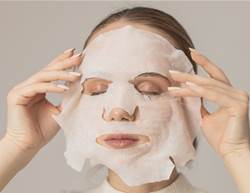Not getting the results you desire from your complexion regimen? Your methods may be out of sync with your skin type, which can be influenced by age as well as genetic, hormonal, lifestyle and environmental factors.
If you can’t identify your type, you’re in good company — according to recent research, about half of women surveyed couldn’t — but it’s key to getting and maintaining your best skin. Here, dermatologists and beauty experts explain how to pinpoint your skin type and offer must-know tips.
Your skin type: dry
Your complexion:
- is flaky or rough
- feels itchy or tight
- looks dull or lined
“One of the main causes of dry skin is a lack of oil production in skin’s sebaceous glands, which can be due to genetics, aging or environmental factors like harsh weather conditions,” says dermatologist Dr Divya Shokeen.
Care cues: Seek out “hydrating skincare products to add moisture back into skin,” says dermatologist Dr Nkem Ugonabo. Look for ingredients like hyaluronic acid, glycerin, squalane and ceramides, Dr Shokeen advises, and avoid dehydrating ones like alcohol and salicylic acid.
Choose gentle, fragrance-free formulas with thicker textures such as creams and wash with lukewarm rather than hot water, Dr Ugonabo recommends.
Your skin type: oily
Your complexion…
- is shiny or greasy
- has large pores or blackheads
- is prone to acne
Brought on by culprits like hormonal fluctuations and genetics, “an oily skin type tends to have an overproduction of sebum, skin’s natural oil,” says dermatologist Gabriella Vasile. “This can make it more susceptible to acne and the appearance of enlarged pores.”
Care cues: Opt for skincare products with lighter-weight formulas like liquids, serums, gels and lotions labelled “non-comedogenic” or “oil-free” (which are less likely to clog pores) and “mattifying” (to control visible oil), suggests chemist Danusia Wnek. Cleanse twice daily with a foaming face wash, Dr Ugonabo says, and try treatments with beta and alpha hydroxy acids (like salicylic and glycolic acid), as they “can help decrease oil production and the appearance of large pores,” Dr Vasile adds.
Your skin type: combination
Your complexion…
- has oily areas, like the T-zone
- may also have dry patches
- could be prone to breakouts or flaking
“This is a common skin type characterised by having both oily and dry skin areas,” Dr Shokeen says. “People with combination skin may experience an oily T-zone [forehead, nose and chin] and dry or balanced skin on spots like the cheeks.”
Care cues: Cleanse with a gentle pH-balanced face wash to remove excess oil and impurities without stripping skin’s natural oils, she advises. Seek out serums and lightweight, noncomedogenic moisturisers containing ingredients such as niacinamide, panthenol, glycerin, hyaluronic acid, green tea and vitamins C and E, “which help balance skin hydration yet won’t clog pores,” Dr Shokeen explains.
Your skin type: sensitive
Your complexion:
- burns, stings or itches
- appears red
- feels and looks dry
Another ubiquitous type, “sensitive skin easily becomes irritated and inflamed, especially after the use of certain skincare products or exposure to environmental triggers like cold weather,” Dr Shokeen says.
“Some people have naturally sensitive skin, while others may develop it due to exposure to harsh chemicals, allergens, weather changes and other external factors.”
Care cues: Reduce the risk of irritation by choosing fragrance- and alcohol-free products labelled “hypoallergenic,” “for sensitive skin,” “soothing” or “calming.”
Opt for serums and moisturisers that contain skin soothers such as colloidal oatmeal, chamomile and aloe vera as well as mineral sunscreens, which are gentler, Dr Shokeen advises.
“Avoid formulas made with strong acids or retinoids and washing with hot water, which can inflame skin,” she says.
Your skin type: balanced
Your complexion:
- doesn’t feel or look oily
- is not usually dehydrated
- has little to no sensitivity
- “Having balanced or ‘normal’ skin means that you have a healthy skin barrier,” Dr Vasile explains.
“It’s not as prone as other skin to acne, oiliness, flaking, large pores, sensitivity or dryness.”
Care cues: Stick with the basics, including cleansing and moisturising skin daily using hydrating formulas, she says. “No matter what your skin type, apply a broad-spectrum face sunscreen of at least SPF 30 daily to protect against UV damage,” Dr Vasile recommends.
Is it possible that my skin type has changed?
Yes, your skin type can vary over time for a variety of reasons.
Hormonal fluctuations (such as during the teen years, pregnancy and menopause), age and environmental or lifestyle shifts can all contribute to changes in skin type, Dr Shokeen says.
“For example, as you age, your complexion may become drier and more prone to wrinkles, and variations in climate or using different skincare products can have an impact,” she explains.
“This is why it’s important to reassess your skin type periodically and adjust your skincare routine accordingly.”







.jpg&h=193&w=250&c=1&s=1)


